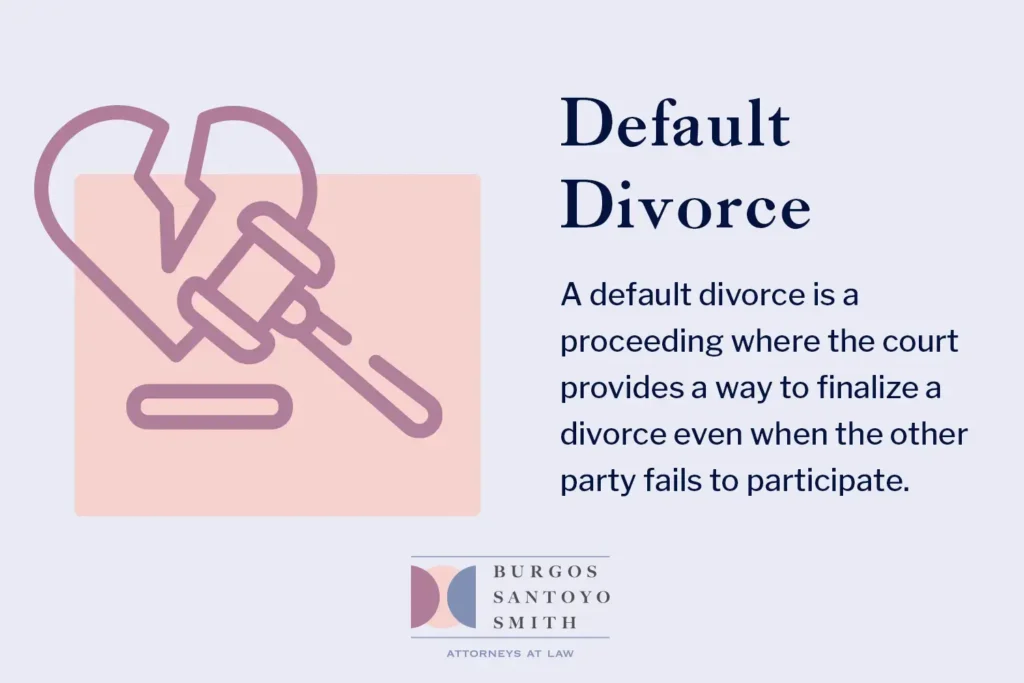Divorces tend to be less than amicable at times . . . and often one party wants to proceed in the divorce while the other side wants no part of the divorce. The California Court system does not care whether the person delaying is being rational or spiteful. The court has a procedure for people that refuse to participate. It is called default and results in a default judgment if the other party decides to bury their head in the sand and hope everything goes away. This stubbornness can actually work in your favor!
In California Family Law proceedings, there are generally two ways for a responding party to default. The first is when the responding party fails to appear at their court hearing after being properly noticed/served. The second is when a person fails to respond to paperwork after being properly noticed/served. In this article, we will explore the second option.

Example of a Default
Playing off the above example, we will go with an ex-spouse that does not respond to the initial petition and summons used to begin dissolution proceedings. So, say you file a petition and summons and get your spouse served. The spouse now has 30 days to respond to your petition. If the spouse does not file the response within that timeframe, you can go ahead and file the default paperwork. This paperwork includes an FL-165 Request For Default, FL-170 Declaration for Default or Uncontested Dissolution, FL-180 Judgment, and FL-190 Notice of Entry of Judgment.
Some counties also require a prove-up hearing, but San Diego is not one of those counties. Unfortunately, you are still not done yet. Patience is an important commodity, even in default proceedings. The fastest an individual can get divorced in California is six months after the date of service of the Petition and Summons, even in a divorce default cases.
Default Judgment Granted in Divorce Proceeding
If the default judgment is granted, you are still not out of the woods yet. A default can be set aside within one year after the judgment for actual fraud, perjury, duress, and mental incapacity. Additionally, if a request to set aside a default judgment is filed within six months after the judgment, then the judgment could be set aside for mistake, inadvertence, surprise, or excusable neglect.
Defaults can quickly become a complex issue. If you think this applies to your case, call us at (833) 931-1615 or click to schedule an initial consultation!

